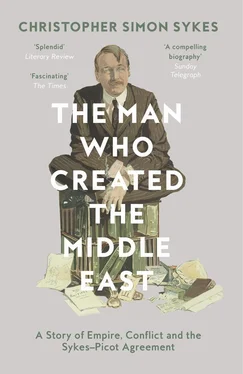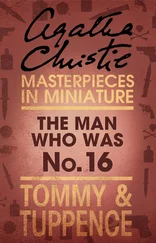Tatton’s lawyer, Gardiner, advised him to stand firm and not pay his wife a penny more. He arranged for him to leave the country for three months and, in the meantime, put the house in Grosvenor Street up for sale and gave notice to all the servants. He also made it his business to collect any information he could which might be eventually used against Jessie. He sent his men to Yorkshire, for example, to collect statements from people willing to testify as to her drinking. One such affidavit, from the second coachman at Sledmere, James Tovell, told how he had collected her one morning in July 1894. ‘I could not understand her orders,’ he said, ‘and she kept me driving her about from about 10 until 3 o’clock and was unable to tell me where she wished to go.’ He went on to state that ‘her conduct was so notorious that onlookers frequently chaffed me on her condition’. Robert Young, the assistant stationmaster at Malton, said, ‘her conduct was the subject of conversation amongst the men’. 14
Seeing that he was getting nowhere, Jay now decided to take his case to court to force the payment of the debts. His case was straightforward; that he had consistently lent money to Lady Sykes, and, as evidence of this, the court would see five promissory notes all signed in 1896 by both Sir Tatton and Lady Sykes, for sums ranging from £1,200 up to £5,000. He had made repeated requests for their repayment, but to no avail. There was also an important letter, apparently signed at Grosvenor Street, on 2 January 1897, asking Jay to accept security for payment until the return of Sir Tatton from the West Indies in March. The problem was that Tatton denied that the signatures on the notes and the letter were his.
After an initial delay of one month, owing to Tatton having fallen victim to a bout of bronchial pneumonia, the case finally opened in the Queen’s Bench on 12 January 1898. Heard before the Lord Chief Justice, Lord Russell of Killowen, it was loudly trumpeted and closely followed by an eager pack of journalists from all the daily papers. It is easy to imagine how the ears of the press must have pricked up when they heard the opening address of Mr J. Lawson Walton QC, acting for Jay, for he did not understate ‘the eccentricities of character which marked the defendant in the knowledge and estimation of his friends’. 15He described a man of great wealth who had few outside pursuits other than church-building and horse-breeding and who, though he never betted himself, had sowed the seeds of such an interest in his young wife by expecting her to accompany him to racecourses all over England. As a result of this, he told the court, she ‘engaged to a considerable extent in that form of excitement’. Sir Tatton was also parsimonious to a degree that he was prepared to allow an overdraft of £20,000 to permanently exist at his bank, in spite of the heavy interest, because he could not bear to call up the cash to pay it off. In addition to this, the jury were told, he was a recluse who never went out into society – since they were married, she had never once been out to a party or out to dine with him – and who shirked responsibility for the payment of almost all expenses necessary for the upkeep of two houses.
After giving a brief account of the charges, he called Jessie to the stand, and in his cross-examination of her enlarged the picture of the extraordinary Sykes marriage. Nominally, she told the jury, she was to have £1,000 a year, but it was always a fight to get it. She had found herself living in a house ‘as large as Devonshire House’ 16to which very little had been done since 1801 and which then had no drains. Sir Tatton paid for nothing, and whenever she applied to him for money he was very tiresome. At one point, before the birth of her son, she had even been obliged to sue him for her pin money. As a result of this attitude, she had, with his knowledge, begun to borrow money, and had been doing so for eighteen years. Her debts had consequently increased like a snowball ‘and time did not improve them’. She knew, she claimed, it was ‘an idiotic thing’ 17to do, and would never have done it had she been able to get the money elsewhere.
Cross-examined by Tatton’s junior QC, Mr Bucknill, she elicited laughter from the court when, in answer to his question as to whether she considered her husband was a sound business man, she replied that in her opinion he was ‘as capable of managing his own affairs as most women’. 18As an example, she cited the fact that instead of reading his letters, many of which contained share dividends, he often just threw them in the wastepaper basket. She had once found, she recalled, a warrant for a very large sum from Spiers and Paul in the bin, and had asked him to give it to her as a reward. She also intimated to the court that Tatton knew about her betting and was very proud when she won. He would tell everybody he saw about it, and always wanted £100 out of her winnings. When asked if she was angry after he had placed the advertisement in the newspapers, she replied, ‘You are not angry with people who are like children … He is like a child in many ways … Yes, like a naughty child.’ 19
Most of the notes in question, she told Mr Bucknill, were signed in Grosvenor Street, and she had explained to Tatton that she wanted him to sign them in order for her to get money. It was unlikely, she had assured him, that he would ever have to pay up. When questioned closely about the times and dates of the various notes, she became vague, saying Tatton ‘did not mind what he signed’ and repeating, ‘He would not give me any money, so I had to borrow.’ As Bucknill piled on the pressure she was reduced to repeating the defence that ‘Sir Tatton knew all about it, but he had a bad memory.’ 20
Re-examined by Mr Walton, Jessie reiterated that all the signatures purporting to be Sir Tatton’s were made by him, in her presence. These included those on two cheques for £1,000 signed in 1895 in Monte Carlo, and cashed at Smith and Co.’s Bank, which Tatton subsequently claimed to be forgeries. ‘Sometimes he used to say he had signed guarantees, sometimes that he had not,’ Jessie rambled on, her testimony having become rather disconnected. ‘It never made any difference to our way of living. He never treated me as having been guilty of a great crime. I do not think he realized what forgery meant. I have never had a cross word with him about it. I went over to Paris last October and lunched with him, and he said “Oh, it’s all the lawyers. It’s not my fault.”’ 21Laughter filled the court room.
Two of Mark’s tutors were now called. Robert Beresford, who succeeded Doolis, told Mr Walton that, in his opinion, the signatures were those of Sir Tatton, though in cross-examination by his defence counsel, Sir Edward Clarke, he admitted that the last document he had seen him sign had been as far back as 1892, and that the more recent signatures ‘were blurred and unlike his normal signature’. When asked by Lord Russell if he considered Sir Tatton an intelligent man, he caused a stir by answering that he had always thought him to be suffering from incipient insanity. ‘He would go about in ten coats,’ he told a surprised court. ‘You don’t mean that literally?’ asked Lord Russell, adding, ‘You mean two or three.’ ‘No I don’t,’ he replied. ‘I mean seven or eight overcoats one over the other … I can swear to that distinctly, because there were five covert coats, and one or two silk coats.’ When Egerton Beck was called to the stand and told the court that, in spite of Sir Tatton being ‘habitually a sober man’, one signature did not look as if it were written by a very sober person, Sir Edward asked, ‘That observation as to sobriety does not apply to Lady Sykes?’ 22Luckily for Jessie, Lord Russell forbade that line of questioning.
Читать дальше











